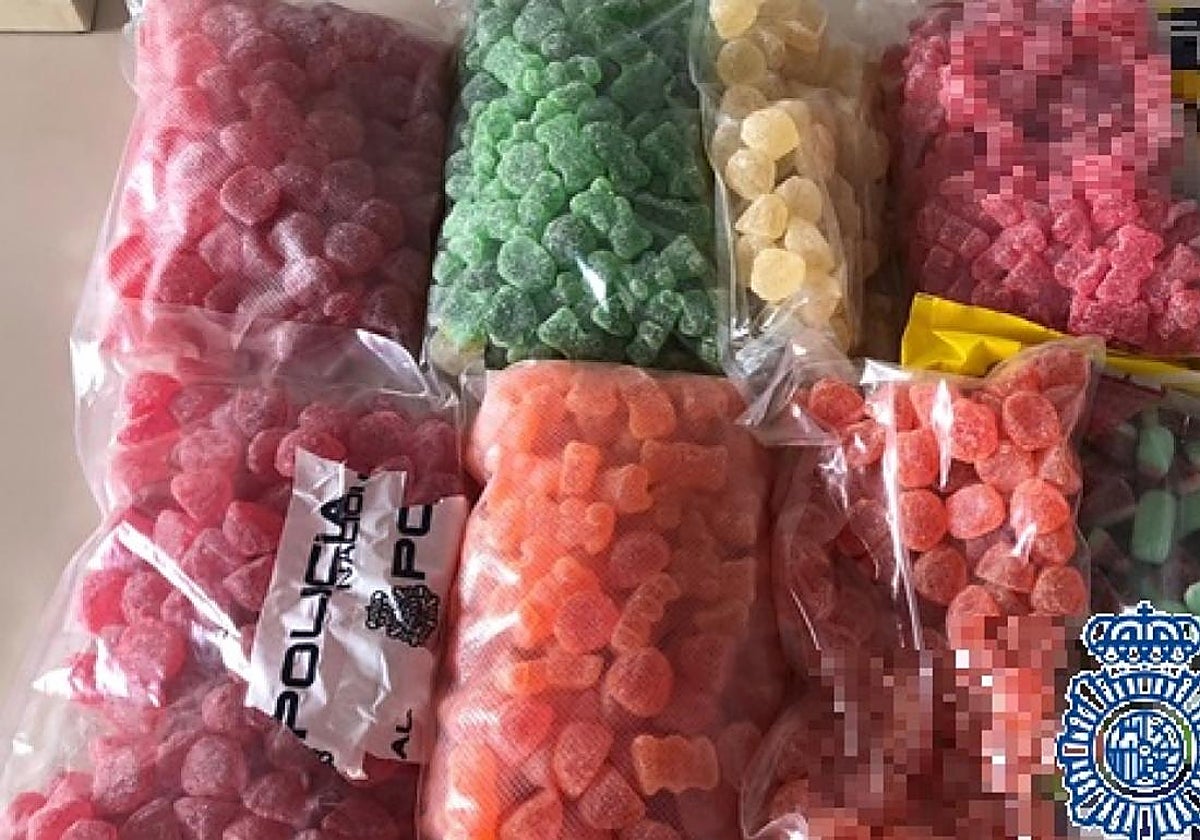Three Malaga police officers intoxicated after 'mistakenly' eating drug-laced jelly sweets
The substance had been seized in a search at a cannabis club in Fuengirola and the sweets were in an unlabelled bag at a police station, causing officers unrelated to the case to believe that they were sweets
Three police officers ended up in the emergency department in Malaga last week after suffering an accidental narcotic intoxication. According to a report by provincial police authorities, the officers "mistakenly" ate some jelly sweets and felt unwell, which led to their hospitalisation.
The events took place after another unit of the police station went to Fuengirola to carry out a search in a cannabis coffee shop. The establishment had been on their radar, awaiting investigations.
The officers seized different substances that were allegedly being distributed under the guise of sweets or jelly sweets. The police suspected that the candy contained narcotics, which makes selling them in this type of establishment illegal and a potential crime.
The investigators transferred all the packages to the police station, where they were labelled and sealed. Police sources stated that one of the bags was left unprocessed, either by mistake or by a simple oversight.
According to the official version of the incident, the poisoning occurred when another group of officers entered the coordinators' room after a street intervention and, seeing the bag of unlabelled and open jelly sweets, took several of the sweets.
Shortly after eating the sweets, three of these officers began to feel "unwell". They were taken to the hospital, where the intoxication was confirmed and treatment was administered. All three were discharged a few hours later.
After investigating the sequence of events, the police have concluded that it was an inadvertent mistake resulting from an oversight, although the entire process and chain of custody of the seized substances is pending review.
This is not the first time that police authorities have seized narcotics camouflaged as innocent sweets. In 2022, the National Police seized 11 kilos of jellies in Benalmádena that were impregnated with 'La Bomba' - a potent hallucinogen, scientifically known as 25N-NBOM, which is sold as an alternative to LSD or mescaline. Its effects on the body can last for more than twelve hours.
Investigations of pro-cannabis clubs have become more common in recent years. Although the establishments are officially registered in Andalucía, supposedly promoting the study of hemp and the defence of consumers' rights, police authorities believe that many of them are a cover for drug-trafficking.

